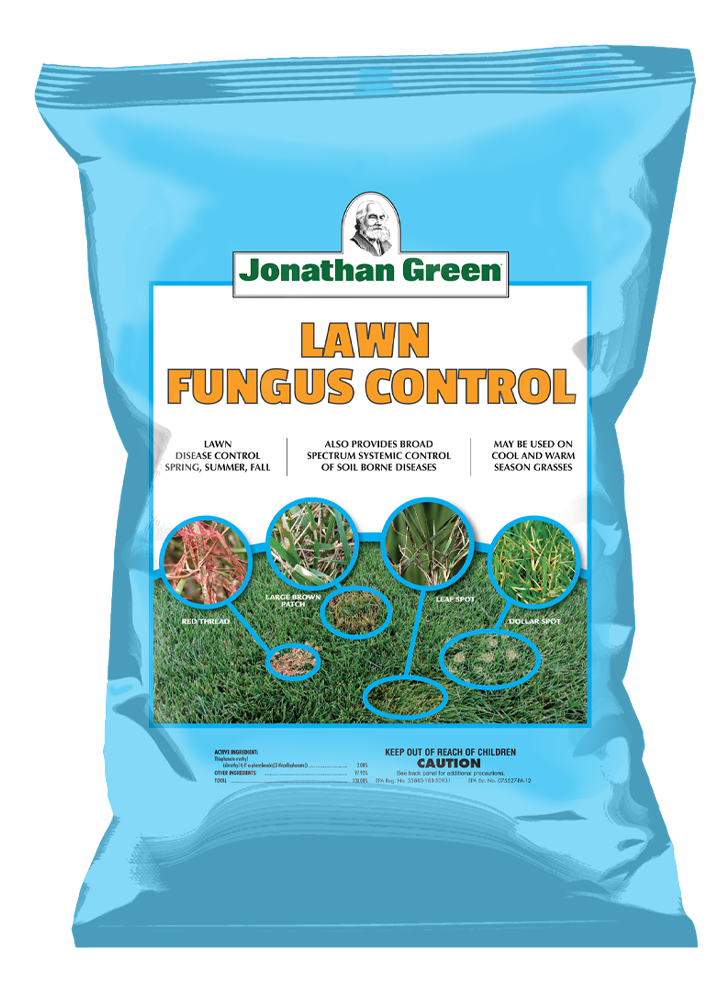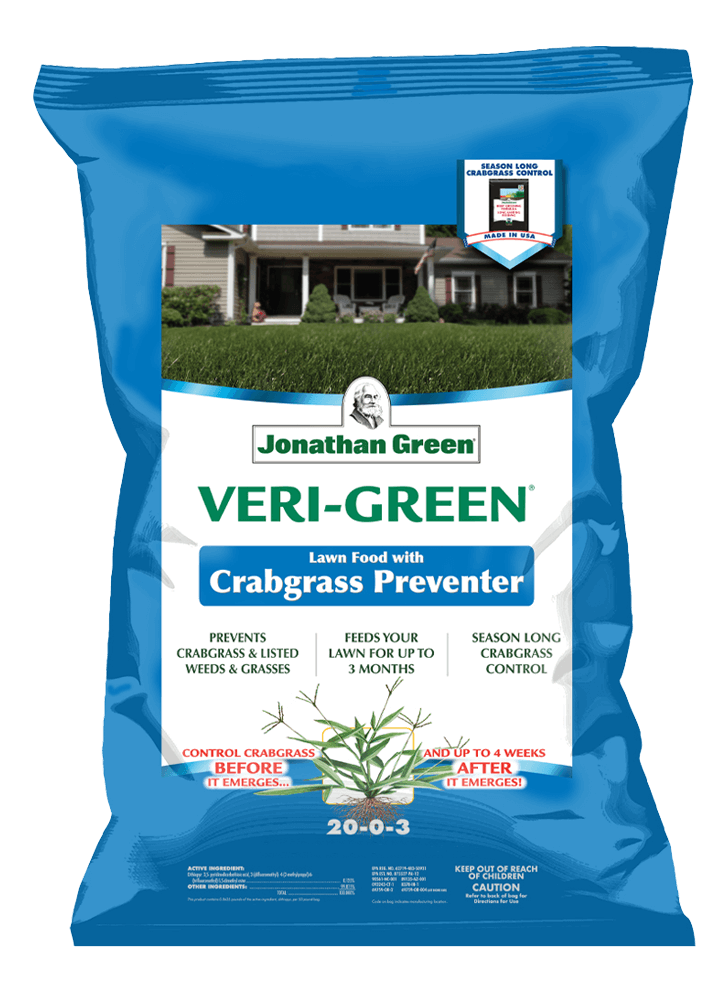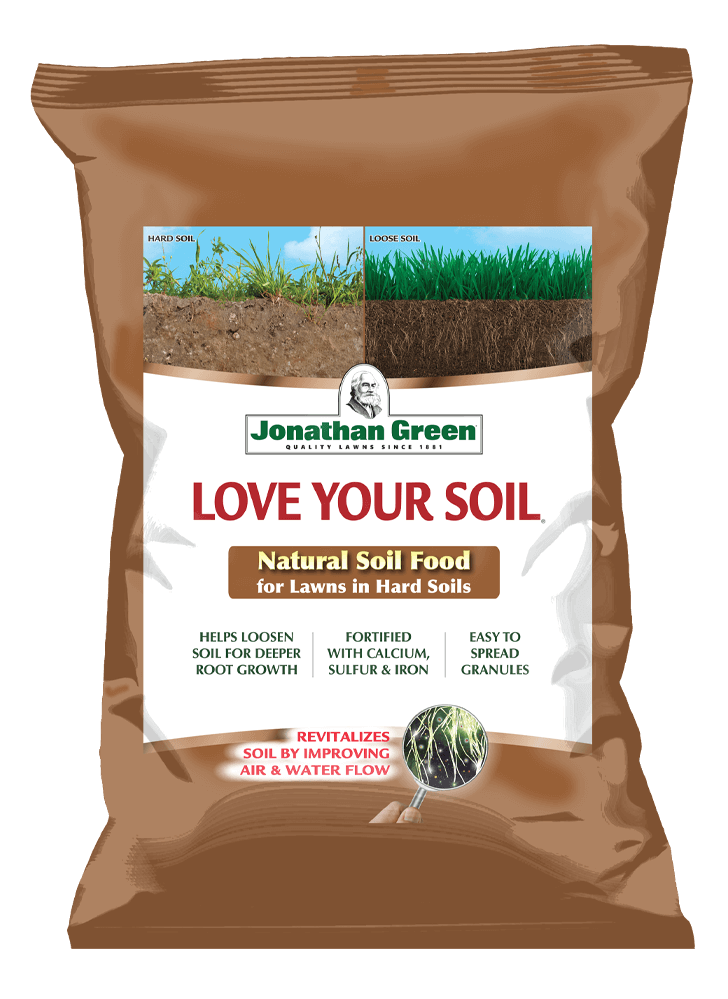3 Post-Winter Lawn Problems and How to Fix Them
Prior to beginning your spring lawn care routine, you may find your grass is brown from going dormant or showing signs of damage from snow mold or voles. At first glance, these problems may seem overwhelming, but they are quite common to experience coming out of winter and easy to fix! All it takes is some knowledge about how to identify them, the use of tools you already own, and patience, as your lawn will be revived and green in time for spring. Read on for more information about how to properly identify these problems in your yard and easy solutions to fix them.

Dormant Grass
During the winter season, cool-season grasses experience a period of rest known as dormancy. The grass becomes dormant when soil temperatures fall below 45°F and is commonly mistaken for dead grass, due to its dull, brown appearance. To determine if your grass is either dead or dormant, you can perform a simple tug test:
Tug Test
- Grab a small section of your grass and tug
- If the grass pulls out from the ground easily, it is dead. If the grass has some resistance and is difficult to pull, it is dormant.
Another way to distinguish the difference between dormant and dead grass is by watering your lawn. Dormant grass will begin to revive and green up again once watered, while dead grass will remain dull and brown.
To revive dormant grass for spring, lightly rake your yard. This will help loosen up the grass and generate airflow to the grass blades. You may have to lightly rake more than once for it to be effective. After raking, mow the lawn, and be sure to bag clippings afterward.
Snow Mold
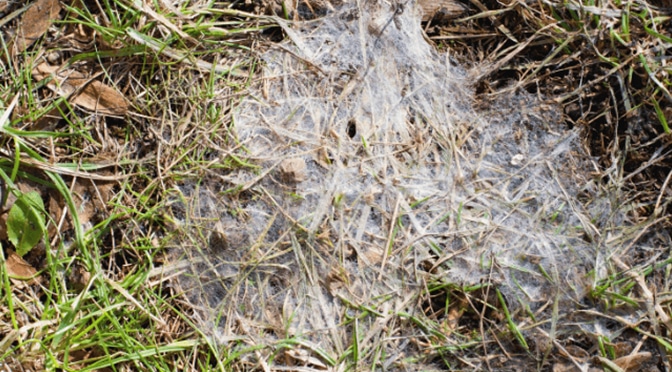
Snow mold is a lawn fungus that affects all varieties of cool-season grasses. It is usually found in early spring after the snow has melted. Snow mold is caused by fungi that remain inactive in your lawn’s soil year-round and begin to develop in wet, damp conditions. Once air temperatures reach 45°F, the fungal spores begin to spread and can result in patches of dead grass in your yard.
Some key indicators of snow mold are areas in your yard where the grass is matted and covered with straw-colored circular patches that measure between 3 to 12 inches. There are two types of snow mold, gray and pink, with pink being the most damaging. Gray snow mold, or Typhula blight, is usually grayish-white in color and only affects the grass blades. Pink snow mold, or Microdochium patch, can kill both the blades and roots of the grass plant if left untreated and is typically whitish-pink in color with pink-colored growth on the outer edges.
If you have seen signs of snow mold in your lawn don’t worry! Snow mold fungus stops growing when temperatures are consistently between 45°F and 60 °F and the surface of the lawn is dry. To treat the effects of snow mold, first, lightly rake the lawn to promote air circulation, allow light to filter between grass blades, and dry out any dead material. This will create airflow and space for new grass to grow and prevent the disease from further progression. Finally, mow the lawn on a high setting as to not stress the lawn, and be sure to bag any clippings.
If your lawn struggles from severe infestations of snow mold year after year you may want to apply a fungicide like Jonathan Green Lawn Fungus Control in late fall as a preventative right before the first snowfall.
Vole Damage
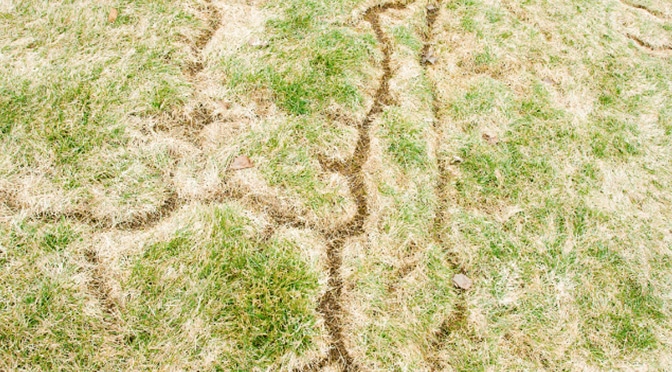
Voles can also cause damage to your lawn in the winter, as this is when they actively run around your yard. A key indicator of vole damage is the tracks they leave behind from running through your yard and eating the grass. These unsightly tracks are known as surface runways and are about ½ inch wide. Vole damage will not cause long-term damage to your lawn, as opposed to mole damage, which can be severe and harder to treat because they tunnel in the soil vs voles that simply run on top of the lawn.
Vole damage can usually be treated without the use of chemicals by lightly raking the lawn in the affected areas. This will encourage growth and generate airflow. As cool-season grass begins its growth cycle in the spring, the tracks will eventually knit back together and grow in any damaged areas. If you still experience the effects of vole damage in the spring after raking and fertilizing, you can overseed the bare areas to thicken and create a more uniform appearance.
How to Revive Your Lawn For Spring
Once you’ve raked and mowed your lawn to resolve post-winter problems, these additional steps will help you to get your lawn revived and ready for spring:
Feed your lawn with nitrogen-rich fertilizer
Your lawn will need a boost of nutrients following a period of harsh winter weather. Applying a nitrogen-rich fertilizer in late March or April, such as Veri-Green Crabgrass Preventer plus Lawn Fertilizer, will help to quickly revive your lawn for spring and stimulate growth. The key to solving most post-winter lawn problems is allowing the lawn to grow out of them. The best way to further supplement that growth is by using fertilizer. By fertilizing the lawn, you encourage the growth of greener grass instead of brown, dormant grass and thicker grass will fill in vole tracks and push out snow mold.
If you are unsure of when to start applying fertilizer in the spring, a good rule of thumb is to make sure your soil temperatures are at least 55°F.
Aerate the lawn
Your soil may be compacted after winter due to the weight of the snow on your lawn. Aerating your lawn can help to relieve compaction and generate airflow to your lawn’s soil. You can use a core aerator to help loosen soil plugs and make room for water, air, and nutrients to travel to the lawn’s root system. This will only provide temporary relief, however, as the holes will eventually fill back in and the soil will re-compact.
A natural alternative to core aeration is to apply Love Your Soil®, which naturally loosens hard soil and improves grass growth, root penetration, and root mass. Love Your Soil® contains fast-acting gypsum to soften hard soil and beneficial humates which stimulate soil microbes so they can break down organic matter and convert it into nutrients the grass can absorb.
Mentioned Products
Mow and water regularly
Mowing and watering your lawn regularly can help to stimulate growth in your lawn before spring. It’s important to not mow too low, so set your mower height high (3 to 4 inches) to ease your lawn into spring. You should also water your lawn if there is not enough rain to encourage new growth. On average, lawns need 1 – 1.5 inches of water per week during the growing season. Do not overwater as this can encourage fungus to grow.
The Bottom Line
Even the healthiest lawns will need a pick-me-up after awakening from winter dormancy. While problems like snow mold and vole damage may seem severe at first glance, they are actually quite common and easy to fix. Giving your lawn a light raking, mowing, bagging your clippings, and applying a nitrogen-rich fertilizer are the best methods to help revive your lawn for spring. The most important thing to remember when caring for your lawn post-winter is to have patience, as your lawn will grow out of most of these problems once the spring growth cycle begins. Want to know more about how to care for your lawn in spring? Check out our 8 of the Best Spring Lawn Care Tips article!
